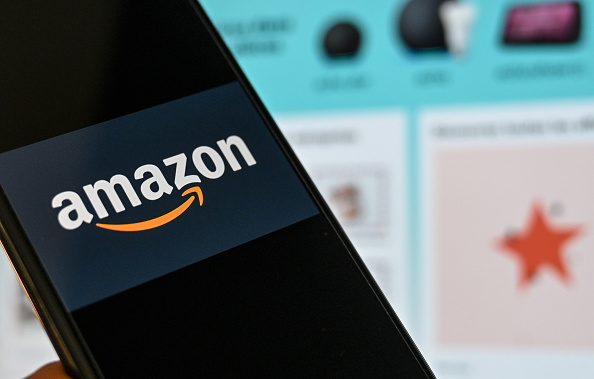Even a casual observer might conclude that all is not well on the UK’s high streets. It’s become hard to miss the frequent news headlines on the casual dining crunch and major retailers entering administration, such as Toys R Us and Maplin, or issuing profit warnings, including Mothercare and Debenhams.
The less casual observer might have noticed data from Linklaters, reported in The Times, identifying a significant rise in investors short selling against the retail sector – along with Moody’s finding that the number of retail businesses defaulting reached an all-time high in Q1.
However, focusing on the difficulties faced by major retail businesses means missing the wider picture on how the sector is evolving, and how new technology is offering SMEs, entrepreneurs and micro-retailers the opportunity to thrive despite the challenges facing the sector.
The chance for small businesses to succeed
One of the main reasons many large retailers are currently facing difficulties is that they overinvested in physical store space during good economic times.
This makes them particularly vulnerable to a downturn in consumer confidence or a shift towards online shopping. While small businesses have their own challenges to tackle, they are far less likely to face this particular difficulty.
And, with new technology creating opportunities for micro-retailers to thrive in a challenging environment, they have an opportunity to repopulate the high street through a flexible pop-up based approach to store space, while remaining comparatively unaffected by the challenges many large businesses face.
New tech solutions democratising retail
New mobile payments technology is allowing small businesses to increasingly meet the needs of consumers and position themselves as credible retailers. This includes solutions that provide greater flexibility, increase revenue and provide a consistent experience online and in-store.
These mobile payments solutions are set to prove particularly valuable to small businesses seeking to win over customers in an increasingly cashless economy. The shift towards paying by card was underlined in last year’s UK Cards Association report, which identified a 10 per cent increase in card transactions during the year, reaching 19 billion in total.
However, figures from the British Retail Consortium last year showed that cash still accounts for nearly half of all payments, suggesting many small retailers rely on the instant nature of cash.
It’s through new solutions that micro-retailers can repopulate the high street by taking advantage of technology that enables them to meet consumer needs.
Cracking the cash flow conundrum
Cash flow is often a significant concern for SMEs – BACS research found late payments are costing smaller businesses more than £2 billion a year – and we can expect this to be a particular problem in a difficult retail environment.
This issue would once have been compounded by the fact that we’re increasingly entering a cashless economy, because clunky heritage technology used to mean that card payments would typically take days to arrive in a retailers account.
However, the development of new integrated mobile payment platforms is tackling this challenge, with retailers able to accept and settle payments instantly, which means small businesses gain instant access to funds when accepting cards.
This is a key benefit for those small businesses most likely to be affected by cash flow issues and that might once have opted against accepting cards because of the delay in receiving funds.
Because these instant solutions aren’t built on the traditional banking system, they help small companies and sole traders avoid the bank charges typically associated with creating a business account and accepting card payments.
This allows small businesses to offer the convenience and credibility of big businesses by accepting cards, while avoiding the cash flow difficulties that are likely to cause them greater problems than larger competitors.
Introducing new revenue streams
Boosting revenue and improving customer loyalty is valuable to all businesses at all times – and never more so during difficult times when consumer confidence is low.
Advanced payment technology is also helping small businesses here, enabling them to create more diverse revenue streams and boost loyalty.
This includes payment technology that enables even the smallest business to offer their own private label gift cards – which boosts footfall and revenue, while helping to enhance brand awareness.
Additionally, this same technology is creating a broader range of services for small businesses to offer – with payment terminals that include, for example, mobile phone top-ups.
This means small businesses can move closer to the convenience and wide product range of their large competitors and tackle the issue of limited footfall by providing shoppers with additional reasons to visit the store.
Competing online
Small businesses can also offer the convenience of the largest retailers by providing consistent experiences in-store and online.
This is made possible through integrated payment solutions enabling small companies to create a conjoined physical and online presence and process payments across all channels, including online, in-store and through near-field communication (NFC).
For small businesses that previously were unable to process online payments, these innovations mean they can benefit from the consumer shift towards online shopping – taking advantage of their low investment in physical store space while maximising the ways they can bring funds into the company.
Small business achievement
Clearly the headline-grabbing news in the retail sector suggests that there are tough times ahead. But as payment technology continues to democratise the retail sector and creative entrepreneurs seize opportunities without barriers they once faced, this picture can change.
The future of a more democratic retail industry looks bright – a broader range of businesses and entrepreneurs are set to drive the sector’s success.
Ambreen Khasru is CEO of myPOS.





